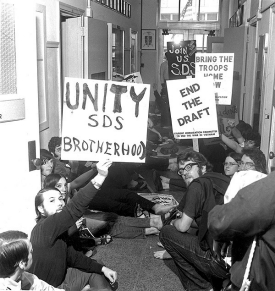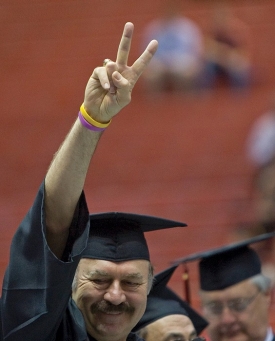University of Cincinnati graduates recall marches, sit-ins and other reactions across campus following news of shootings at Kent State and Jackson State, as well as President Nixon's decision to invade Cambodia. UC's campus closed for several weeks in the spring of 1970, prompting some to leave Cincinnati and miss commencement. The UC Alumni Association invited those grads back four decades later to walk as part of the official graduation ceremony on June 11, 2010.
Video production and editing by Walter Nini, UC Electronic Media
Directed by John Bach and Amanda Chalifoux, UC Magazine


